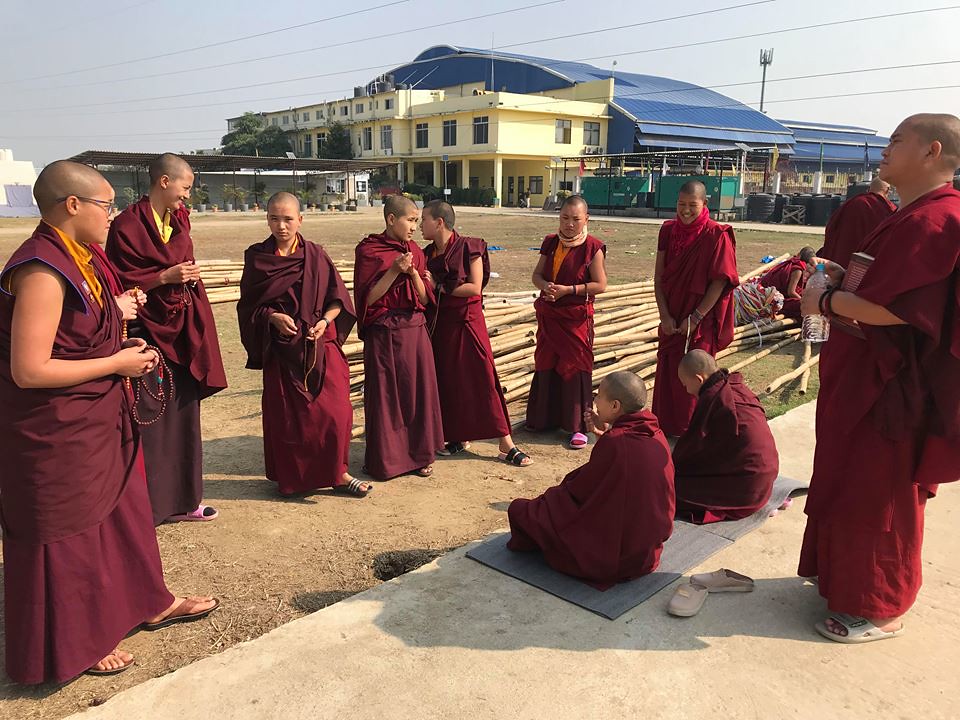January 25-29 and February 6-9, 2019 | 350 nuns representing six different nunneries are participating in the 5th Arya Kshema, the annual event organized for advancing nuns’ knowledge in philosophy and debate. This year nuns gather at scheduled times throughout the day for debate either in the Monlam Pavillion or in the sunny courtyard. As Khenpo Drukgyal from Tilokpur noted, “All the nuns debate with nuns from other nunneries. It is kind of an exchange of knowledge. The competition is still going on like the previous years, but the difference is only that they will not declare a winner. So, there is less pressure.” The five nunneries which have shedras will be participating in the debates. Nuns from Karma Thekchen Leysheyling, which doesn’t have a shedra, will participate in the other training activities and in the rituals.
The feeling is relaxed, but challenging. The nuns put each other to the test – the sound of tsa, tsa, tsa resonates if there is any contradiction. The nuns hone their skills three times a day, once in the morning and twice in the afternoon. The sound of the challengers’ hands clapping as they signify the end of their question posed to the defender is both fierce and at times playful. The nuns are supported by the Khenpos and teachers from their own nunneries. They circulate around the groups of debaters instructing the nuns’ as they hone and strengthen their technique. The nuns trade positions alternating between being the challenger or defender. The debates are broken up into two rounds – the first preceding the Mahakala Puja before Losar and the second and concluding sessions following Losar before the White Tara and Tsering Ma Pujas.
The nuns’ study is based on textbooks specially prepared by His Holiness the Karmapa and a team of scholars as part of his initiative to improve the curriculum and raise the level of monastic studies. Monks and nuns use the same textbooks although the nuns, having started later, are a few years behind the monks. At the moment all the nuns are studying and debating within the area of knowledge known as riglam. This is the foundational study for all Kagyu shedra courses and introduces students to the use of logic and reasoning, essential to debating. Within this area there are three topics and five different levels. Nuns are divided into debating groups across nunneries according to their level. The first topic they study is dudra [Collected Topics]: there are three levels and a separate textbook for each level. Dudra is followed by lorig [Mind and Awareness] and then by tarig [Reasoning]. Next year, the advanced level nuns will begin the second significant area of the shedra curriculum, pharchin [The Perfection of Wisdom].


















